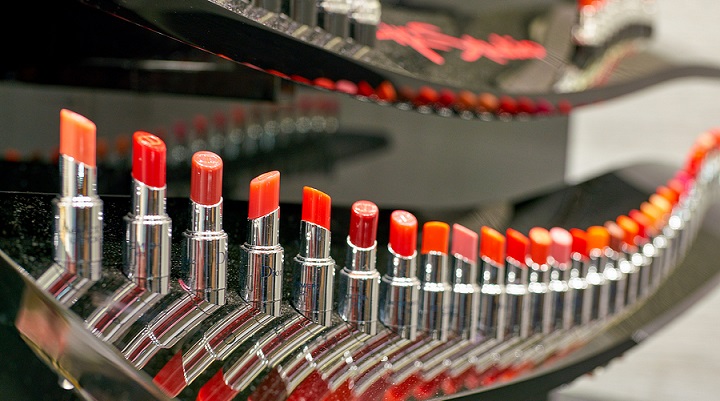The US beauty industry has been put on notice after Ulta Beauty and Target Corporation announced a strategic partnership last week. The two hugely popular retailers are collaborating on a shop-in-shop concept that will see mini Ulta stores open in 100 Target locations across the US next year, with an even bigger rollout slated for the future. The partnership has been described as bringing the ease and convenience of Target’s one-stop shopping together with Ulta’s best-in-class beauty offer
fering. The specialty retailer stocks hundreds of brands, including luxury names like Armani and Dior and Insta-famous labels like Kylie Cosmetics and Morphe.
While it’s unclear exactly which brands will be available in Target stores, a statement about the partnership said they will include “established and emerging prestige brands”. The curated range will also be available on Target.com and its app, and Ulta will be training Target team members to provide expert advice and recommendations in-store.
A force to be reckoned with
News of the partnership has been met with praise from analysts, who see the two retailers as a force to be reckoned with.
“Putting together two very focused and successful retailers is a threat to other beauty players,” said Neil Saunders, managing director of GlobalData.
“Specialists like Sephora will be able to hold their own because of the strength of their brands and the underlying loyalty of their shoppers. However, department stores and drug store chains – which have been losing custom for years – should think carefully about their response to this latest development.”
According to Saunders, Target and Ulta each stand to gain something they need from the partnership. For Target, it’s the perception of having a specialist offer; for Ulta, it’s the connection to younger customers and occasional beauty shoppers (it’s customers skew towards beauty obsessives).
Maddy Kulmar, co-director of Retail Oasis, told Inside Retail that this kind of mutually beneficial partnership is on the rise.
“Normally we think of capitalism as [having a mindset of] ‘I have to take off someone in order to grow my business’, but Ulta Beauty and Target are proving this isn’t the case,” she said.
The main takeaway from their partnership is that “cooperation is the new competition”, she said.
“With so much thought going into whether retailers should be opening (or re-opening) physical stores on not, on the back of Covid, I think this partnership highlights the need to think about collaboration even when it comes to real estate,” she said.
The halo effect
And yet, partnerships sometimes go south. Kulmar noted that JCPenney and Sephora launched a similar shop-in-shop concept several years ago, which recently ended up in court after the department store chain tried to prevent Sephora from exiting its stores.
But as a longtime admirer of the Ulta Beauty business, Kulmar believes Target will benefit from Ulta’s ‘halo effect’.
“Ulta Beauty aren’t just the market leaders in beauty, they are also the thought leaders – always jumping onto new brands and products like Kim Kardashian West’s KKW Cosmetics, Kylie Cosmetics and ColourPop,” she said. “The same mindset is what’s driving them to extend into clean beauty and partner with like-minded businesses like Credo Beauty and TerraCycle.”
The retailer’s success, according to Kulmar, stems from the fact that it is “obsessed” with its customers and is hyper-attuned to the issues that matter to them.
“They also take a strong position with global matters, think Black Lives Matter, voting, diversity and equality, not just because it matters to the company but also because it matters to their customer.”
Ulta Beauty recently posted a 26 per cent year-on-year decrease in comparable sales for the quarter ended August 1, due to the impact of store closures during Covid-19. Online sales rose 200 per cent in the same period.
But its most recent full-year earnings statement for FY19 included a 10.1 per cent increase in net sales to US$7.4 billion, a 5 per cent increase in comparable sales and a gross profit increase of 30 basis points to 36.2 per cent.
Target lifted its FY19 sales 3.6 per cent to US$77.1 billion, reflecting a 3.4 per cent increase in comparable sales combined with sales from non-mature stores. Revenue grew 3.7 per cent to US$78.1 billion, reflecting the 3.6 per cent increase in sales and 6.3 per cent increase in other revenue, and EBITDA grew 5.5 per cent to US$1.9 billion.

